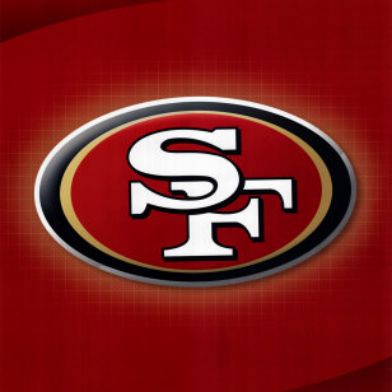 Now that last week’s deadline for reaching a deal on a new collective bargaining agreement between NFL players and owners has passed, next year’s NFL season appears to be in some jeopardy. While both parties have given themselves a one-week extension to come to an agreement, a “fifth down” if you will, the gap between the exemplary human beings on one side and the exemplary human beings on the other may be too intractable to bridge. What does this mean for non-football-interested San Franciscans? More than you might think.
Now that last week’s deadline for reaching a deal on a new collective bargaining agreement between NFL players and owners has passed, next year’s NFL season appears to be in some jeopardy. While both parties have given themselves a one-week extension to come to an agreement, a “fifth down” if you will, the gap between the exemplary human beings on one side and the exemplary human beings on the other may be too intractable to bridge. What does this mean for non-football-interested San Franciscans? More than you might think.
If your annual allotment of football begins in mid-January and ends in early-February (or, like most San Franciscans, started in in 1981 and ended in 1995), what’s happening is that the contract between the NFL Players Association, widely regarded at the weakest union in major American professional sports, and the team owners expired last Thursday.
Under the current system, the owners take $1 billion off the top of the league’s $9 billion annual revenue and the rest they split with the players about 60-40, with the players getting the majority share. The players are satisfied with the status quo but the owners want to increase their off-the-top cut to $2 billion. They claim this is because of the economic downturn but refuse to open their books to the players union to prove it.
They also want to institute a rookie pay scale and increase the number of games per year to 18 (which the players are dead set against because they get more than enough concussions in the current 16 game season).
Basically, the owners want more dollars at the expense of the players and are willing to institute a lockout, which means they close down shop and refuse to let the players play, until they get want they want. Literally, they’re threatening to take their ball (and their multi-million dollar, taxpayer-funded stadiums) and go home. To their mansions.
They seemed more than happy to do this until a Minnesota judge ruled they wouldn’t be allowed to pocket the $4 billion TV networks pay annually to broadcast NFL games in the event of a protracted lockout. For a while it looked like that was going to be enough to push the owners into settling but, thus far, it hasn’t happened.
If this lockout goes though, it would effect Oakland and San Francisco in some similar and some different ways.
Both cities would theoretically see a drop in sales tax revenue from local businesses who receive increased traffic as a result of all the incoming sports fans. However, there’s some debate as to how significant that increase actually is. The Bayview Merchants Association reports negligible difference in neighborhood activity on game days in the neighborhood immediately surrounding the stadium. While the team employs 1,500 part time workers each Sunday, due to the infrequency of games, this isn’t most workers’ main gig, instead the majority run a circuit of similar sporting and entertainment events.
Instead, the real impact would likely be felt in the direct interaction between the teams and the city governments themselves. Oakland-Alameda County Coliseum Authority, the owner of the Coliseum that collects rent from the Raiders and pays the expenses of actually running the stadium, loses on average of a million dollars each season.
This is largely because a couple years after the man even Donald Rumsfeld considers evil conned his way back into Oakland, the city realized they needed to step and provide the stadium with a large operating subsidy in order to prevent the stadium’s finances from spiraling into chaos. Oakland’s budget deficit was over $30 million last year so every million the city saves helps.
San Francisco, on the other hand, would see its coffers drained without regular football games. In 2009, the city netted nearly $5 million from rent credits, parking and various taxes. Much of that money goes to the city’s Recreation and Park Department, which just last month stabilized its budget without significant cuts, so an unexpected $5 million dent would be most unwelcome.
Hopefully, a deal can be reached and a lockout avoided because, after a season of virtually empty stadiums caused the formerly San Francisco-based California Redwoods to become the Sacramento Mountain Lions, the 49ers are the only game in town.
As the President said when asked about the conflict, “I’m a big football fan, but I also think for an industry that is making $9 billion a year in revenue, they can figure out how to divide it up in a sensible way and be true to their fans who are the ones who, obviously, allow for all of the money that they are making.”
Want more news, sent to your inbox every day? Then how about subscribing to our email newsletter? Here’s why we think you should. Come on, give it a try.









